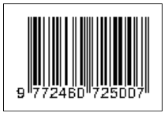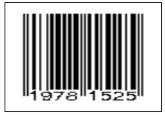Real-Time Face Recognition Civil Servant Presence System Using DNN Algorithm
Yogi Angga Putra(1), Imelda Imelda(2*)
(1) Teknik Informatika, Fakultas Teknologi Informasi, Universitas Budi Luhur, Jakarta
(2) Teknik Informatika, Fakultas Teknologi Informasi, Universitas Budi Luhur, Jakarta
(*) Corresponding Author
Abstract
Facial recognition has become a growing topic among Computer Vision researchers because it can solve real-life problems, including during the COVID-19 pandemic. The pandemic is why the Indonesian government has imposed social restrictions and physical contact in public places. Before the pandemic, most touch-based attendance systems used fingerprints or Radio Frequency Identification (RFID) cards. The solution proposed in this study is to identify real-time facial recognition of the Civil Service presence system using a Deep Neural Network. The goal is to minimize physical contact. The research stages include data collection, augmentation and preprocessing, CNN modeling and training, model evaluation, converting to OpenCV DNN, implementation of transfer learning, and identification of test data. This research contributes to testing variations in distance and position so it can recognize a person's face even when wearing a mask and glasses. This DNN model produces a validation accuracy value of 99.48% and a validation loss of 0.0273 with a data training process of 10 times. Tests for variations in distance, position, use of masks, and glasses on MTCNN detection provide an average accuracy for each trial of 100%, 96%, and 100%, respectively. Therefore, the average accuracy of the Haar Cascades detection test is 100%, 85%, and 100%.
Keywords
Full Text:
PDFReferences
[1] D. Jain, A. Upadhyay, A. Nirban, M. Arya, and R. Mishra, “Face Mask Detection & Attendance System,” Int. J. Sci. Res. Publ., vol. 11, no. 3, pp. 291–292, 2021, doi: 10.29322/ijsrp.11.03.2021.p11140.
[2] H. Fathi, F. Dai, and M. Lourakis, “Automated as-built 3D reconstruction of civil infrastructure using computer vision: Achievements, opportunities, and challenges,” Adv. Eng. Informatics, vol. 29, no. 2, pp. 149–161, 2015, doi: 10.1016/j.aei.2015.01.012.
[3] W. Team, “WHO COVID-19 Dashboard,” 2020. .
[4] W. TEAM, “WHO-Convened Global Study of Origins of SARS-CoV-2:China Part,” 2021.
[5] F. inda N. Abida, I. W. Pastika, and Y. Rahman, “Analyzing the Text of the Regulation on Quarantine During the COVID-19 Pandemic : Forensic Linguistic Study,” vol. 3, no. 2, pp. 221–228, 2022.
[6] M. Aritonang, I. D. Hutahaean, H. Sipayung, and I. H. Tambunan, “Implementation of Fingerprint Recognition Using Convolutional Neural Network and RFID Authentication Protocol on Attendance Machine,” ACM Int. Conf. Proceeding Ser., pp. 151–156, 2020, doi: 10.1145/3397391.3397449.
[7] S. Bhattacharya, G. S. Nainala, P. Das, and A. Routray, “Smart Attendance Monitoring System ( SAMS ): A Face Recognition based Attendance System for Classroom Environment,” 2018 IEEE 18th Int. Conf. Adv. Learn. Technol., pp. 358–360, 2018, doi: 10.1109/ICALT.2018.00090.
[8] K. H. Teoh, R. C. Ismail, S. Z. M. Naziri, R. Hussin, M. N. M. Isa, and M. S. S. M. Basir, “Face Recognition and Identification using Deep Learning Approach,” J. Phys. Conf. Ser., vol. 1755, no. 1, 2021, doi: 10.1088/1742-6596/1755/1/012006.
[9] P. Gupta, N. Saxena, M. Sharma, and J. Tripathi, “Deep Neural Network for Human Face Recognition,” Int. J. Eng. Manuf., no. January, pp. 63–71, 2018, doi: 10.5815/ijem.2018.01.06.
[10] K. Alhanaee, M. Alhammadi, N. Almenhali, and M. Shatnawi, “Face Recognition Smart Attendance System using Deep Transfer Learning,” Procedia Comput. Sci., vol. 192, pp. 4093–4102, 2021, doi: 10.1016/j.procs.2021.09.184.
[11] G. Kaur et al., “Neuroscience Informatics Face mask recognition system using CNN model,” Neurosci. Informatics, vol. 2, no. 3, p. 100035, 2022, doi: 10.1016/j.neuri.2021.100035.
[12] A. Nurhopipah, I. R. Azziz, J. Suhaman, and U. A. Purwokerto, “Behind the Mask : Detection and Recognition Based-on Deep Learning,” vol. 16, no. 1, pp. 67–78, 2022.
[13] J. S. Talahua, J. Buele, and P. Calvopiña, “Facial Recognition System for People with and without Face Mask in Times of the COVID-19 Pandemic,” pp. 1–19, 2021.
[14] A. K. Sharadhi, V. Gururaj, S. P. Shankar, M. S. Supriya, and N. S. Chogule, “Face mask recogniser using image processing and computer vision approach,” in Global Transitions Proceedings, 2022, vol. 3, pp. 67–73, doi: 10.1016/j.gltp.2022.04.016.
[15] R. E. Saragih and Q. H. To, “A Survey of Face Recognition Based on Convolutional Neural Network,” Indones. J. Inf. Syst., vol. 4, no. 2, pp. 122–139, 2022.
[16] M. Ranjan, V. Tripathi, and A. Dubey, “A novel data augmentation approach for mask detection using deep transfer learning,” Intell. Med., vol. 5, p. 100037, 2021, doi: 10.1016/j.ibmed.2021.100037.
[17] P. Gupta, V. Sharma, and S. Varma, “A novel algorithm for mask detection and recognizing actions of human,” Expert Syst. Appl., vol. 198, pp. 1–10, 2022, doi: 10.1016/j.eswa.2022.116823.
[18] A. Nurhopipah and A. Harjoko, “Motion Detection and Face Recognition For CCTV Surveillance System,” IJCCS (Indonesian J. Comput. Cybern. Syst., vol. 12, no. 2, pp. 107–118, 2018, doi: 10.22146/ijccs.18198.
[19] A. Nurhopipah and U. Hasanah, “Dataset Splitting Techniques Comparison For Face Classification on CCTV Images,” IJCCS (Indonesian J. Comput. Cybern. Syst., vol. 14, no. 4, pp. 341–352, 2020.
[20] N. Prasad, B. Rajpal, K. K. Rao Mangalore, R. Shastri, and N. Pradeep, “Frontal and Non-Frontal Face Detection using Deep Neural Networks (DNN),” Int. J. Res. Ind. Eng., vol. 10, no. 1, pp. 9–21, 2021.
[21] M. Arora, S. Naithani, and A. S. Areeckal, “A web-based application for face detection in real-time images and videos,” J. Phys. Conf. Ser., vol. 2161, no. 1, 2022, doi: 10.1088/1742-6596/2161/1/012071.
Article Metrics
Refbacks
- There are currently no refbacks.
Copyright (c) 2022 IJCCS (Indonesian Journal of Computing and Cybernetics Systems)

This work is licensed under a Creative Commons Attribution-ShareAlike 4.0 International License.
View My Stats1







